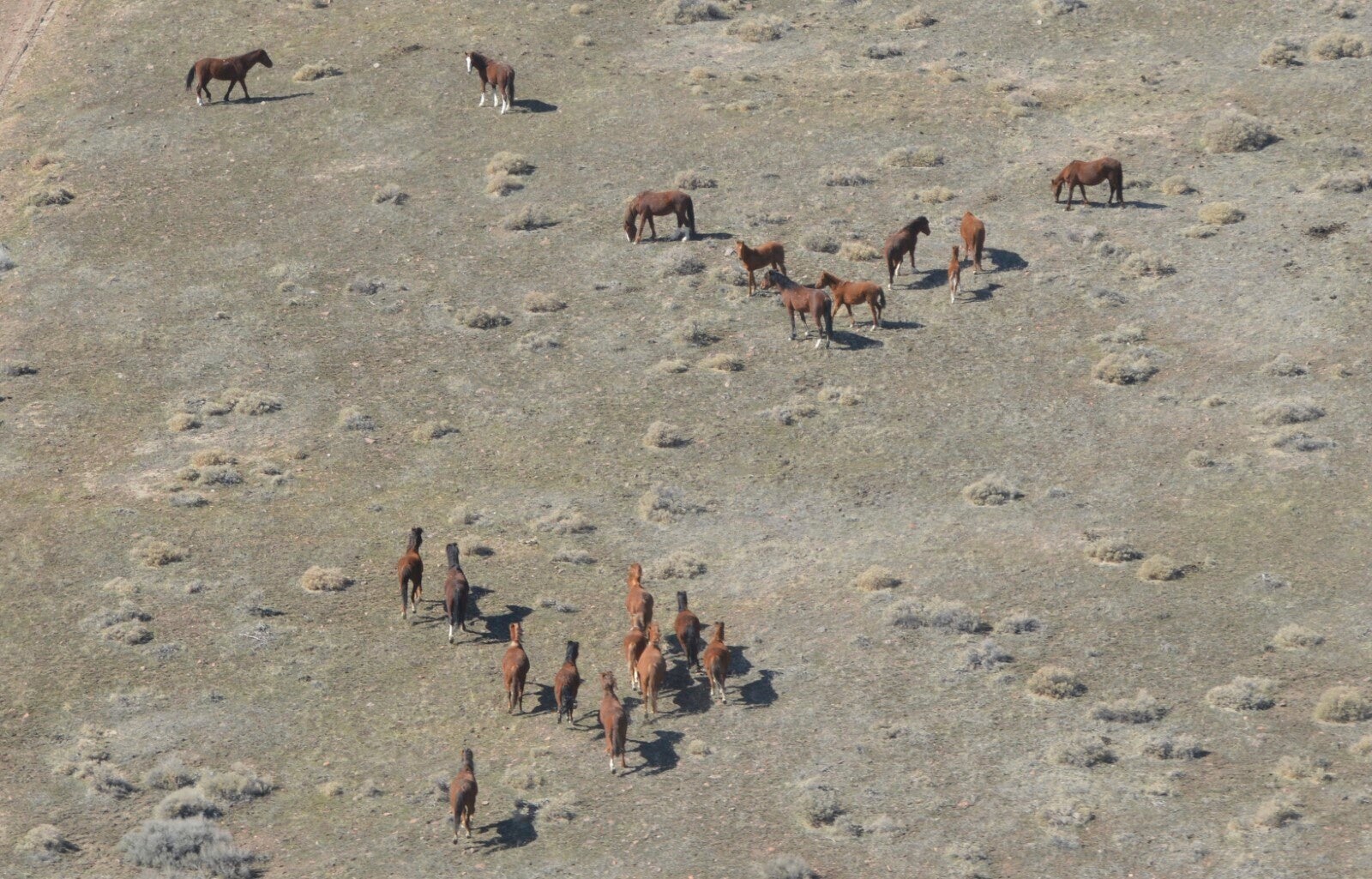Nevada rangeland taxed by wild horses, land managers plan to round up thousands of the animals
U.S. land managers are planning to round up more than 2,800 wild horses across four Nevada counties beginning next week

Your support helps us to tell the story
From reproductive rights to climate change to Big Tech, The Independent is on the ground when the story is developing. Whether it's investigating the financials of Elon Musk's pro-Trump PAC or producing our latest documentary, 'The A Word', which shines a light on the American women fighting for reproductive rights, we know how important it is to parse out the facts from the messaging.
At such a critical moment in US history, we need reporters on the ground. Your donation allows us to keep sending journalists to speak to both sides of the story.
The Independent is trusted by Americans across the entire political spectrum. And unlike many other quality news outlets, we choose not to lock Americans out of our reporting and analysis with paywalls. We believe quality journalism should be available to everyone, paid for by those who can afford it.
Your support makes all the difference.U.S. land managers are planning to round up more than 2,800 wild horses across four Nevada counties beginning next week in an effort to reduce pressure on the drought-stricken rangeland.
The Bureau of Land Management announced details of the operation Friday, saying the current wild horse population across portions of Pershing, Humboldt, Churchill and Lander counties is more than six times what it should be.
Officials said there’s not enough water and forage to support that number.
"Herd overpopulation and severe drought conditions have cumulative impacts on public lands, including wild horse health that must be mitigated,” said Chris Mitchell, the manager of the agency's Humboldt River Field Office.
Mitchell said the goal is to restore an ecological balance across millions of acres of public land in northern Nevada. The area also includes habitat for the greater sage grouse as well as bighorn sheep, mule deer and pronghorn antelope.
The horses that are rounded up as part of the operation will be checked by a veterinarian and readied for the agency's adoption and sale program.
Earlier this year, horse advocates were unsuccessful in stopping another roundup after a federal judge determined the Bureau of Land Management appeared to be complying with the law and doing everything it could to gather the wild horses as humanely as possible.
The Bureau of Land Management reported in November that it has removed nearly 70,000 wild horses and burros and treated nearly 5,600 with fertility control since 2018 as part of its plan to reduce the issues caused by overpopulation, overgrazing and severe drought.